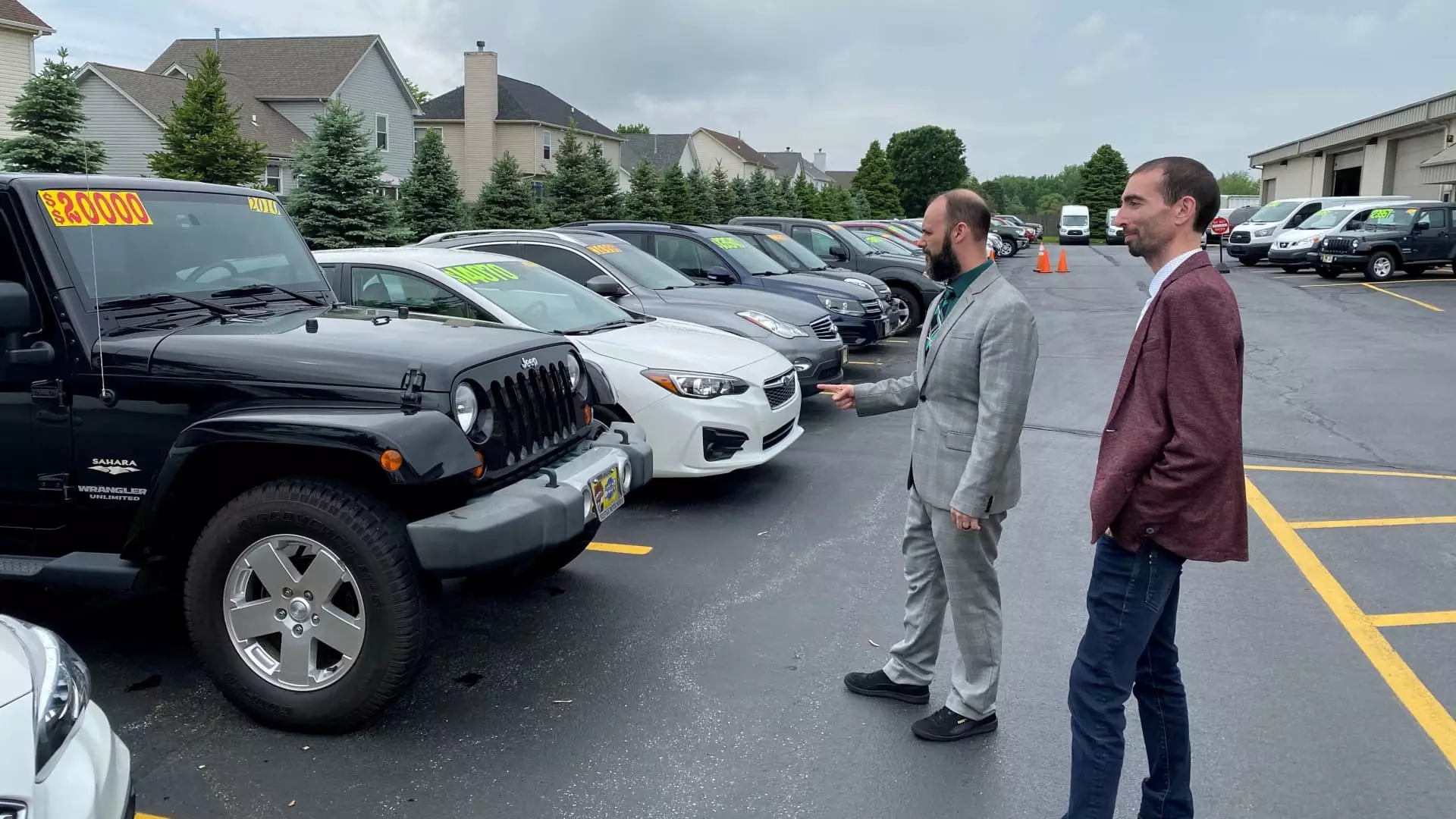As 2025 approaches, a palpable sense of optimism is emerging among U.S. car dealers, prompted notably by the return of Donald Trump to the presidency. This renewed confidence, highlighted in the latest “Q4 2024 Dealer Sentiment Index” from Cox Automotive, stems from encouraging economic signals such as favorable interest rates and attractive sales incentives provided by automakers. However, this optimism appears to be somewhat overshadowed by a growing skepticism about the future of electric vehicle (EV) sales, which signals complexities in the automotive landscape.
The sentiments articulated by dealers suggest a dichotomy: while there is hope for a rebound in overall sales, concerns about EV sales indicate a significant potential for turbulence in this segment. Recent surveys reveal that many dealers are predicting a downturn in EV sales in the forthcoming months. This hesitance is primarily attributed to anticipated policy changes under the Trump administration that could negatively impact EV sales, such as the possible reduction or elimination of federal tax credits designed to incentivize EV purchases.
Concerns Over EV Sales and Policy Changes
The stark reality facing automotive dealers is that the optimistic outlook for the overall market does not extend to electric vehicles, which many see as an essential area for growth in the coming years. The sentiment index indicates a worrying trend, with most respondents fearing a decline in EV sales due to political decisions that might deprioritize federal support for electric vehicle initiatives, including key financial incentives. As outlined by Jonathan Smoke, Chief Economist at Cox, the perception is that the existing tax credits—essential in driving both new and used EV markets—are at risk. This risk alters the landscape dealerships must navigate as they balance between fostering traditional vehicle sales and adapting to the shifting technological tide toward electric mobility.
Amid this uncertainty, dealers are keenly aware that the government’s support for EVs has been crucial for sustaining consumer interest in these vehicles. The concern around potential rollbacks of incentives highlights a critical inflection point for the industry, emphasizing a narrow leash on growth in a segment many view as the future of automotive sales.
Market Conditions and Future Prospects
Despite the anxiety surrounding electric vehicles, the general outlook for the automotive market is decidedly more buoyant than it was just a year ago. The Cox index, which gauges dealer expectations for market performance, saw a significant increase from 42 to a score of 54. This upward trajectory indicates that a larger fraction of dealers now holds a positive view of market conditions compared to their previous assessments, reflective of a decrease in prevailing political uncertainty and the prospect of supportive policy measures.
Additionally, an interesting observation from post-election surveys shows that concerns over the political climate affecting business operations have dropped. Just 35% of surveyed dealers indicated that political factors pose a significant influence on their companies. This reduction in anxiety suggests a growing normalization within the auto retail sector as confidence begins to stabilize.
Even with such positive trends, dealers remain cautious. Though the index indicates a slightly better current market outlook, levels are still below pre-pandemic standards and long-term averages, which raises questions about the sustainability of this optimism. Dealers are rightfully wary as they adjust to an evolving marketplace influenced by various economic and political factors.
As the automotive market gears up for 2025, U.S. dealers are experiencing a complex interplay of optimism and apprehension. The burgeoning confidence inspired by favorable market conditions contrasts sharply with the trepidation over the future of electric vehicle sales in light of potential reductions in government support. Moving forward, the industry must balance anticipation of renewed growth with the necessity to adapt to an uncertain regulatory landscape. The future may hold promise, but it is tinged with challenges that require astute navigation to ensure the continued effectiveness and viability of car dealerships in an ever-evolving market.

